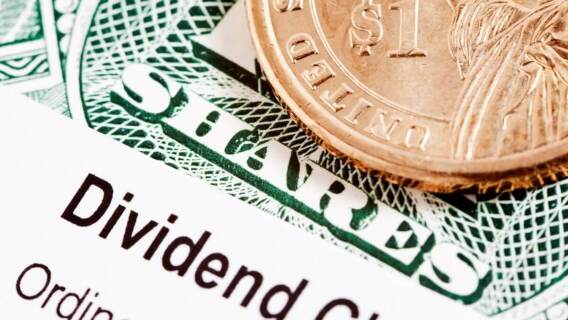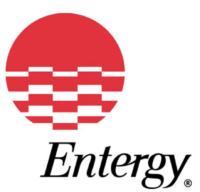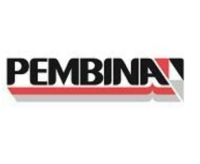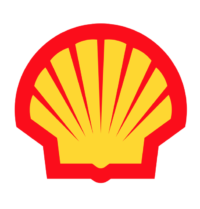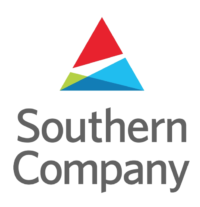Dividend-paying stocks can help investors meet a broad range of investing goals, including generating regular income. Investors who want high regular income from their portfolios typically gravitate toward the highest-yielding dividend stocks.
However, the highest-yielding dividend stocks often come with higher-than-average risk, so you should be selective.
Below, I’ve compiled a list of high yield dividend stocks that also have reliable revenues, rising stock prices and quality businesses. Here are my top 10 dividend stocks for high yield investors:
(After you read this article, be sure to also check out my lists of the Best Dividend-Paying Stocks for Dividend Growth Investors and the Best Dividend Stocks to Buy and Hold.)
Best High Yield Dividend Stocks
- Apollo Global Management (APO)
- AT&T (T)
- Brookfield Infrastructure Partners (BIP)
- Entergy (ETR)
- Gladstone Commercial (GOOD)
- Host Hotels & Resorts (HST)
- Oneok (OKE)
- Pembina Pipeline (PBA)
- Royal Dutch Shell (RDS.A)
- Southern Company (SO)
High Yield Dividend Stock #1: Apollo Global Management (APO)
Dividend Yield: 5.8%
Apollo is an alternative asset manager. The company manages publicly-traded debt funds and real estate investment trusts, runs several private equity funds, and also invests directly in middle-market companies.
APO currently offers a dividend yield of nearly 6%. However, it comes with a few caveats. First, APO’s distribution varies from quarter to quarter based on after-tax earnings, so its yield changes regularly. However, APO’s yield has averaged 5.4% over the past five years, so investors can expect their income stream to stay pretty beefy, if slightly unpredictable.
[text_ad]
In addition, investors who like to keep their taxes simple may not want to trouble with APO. APO’s distribution is made up of income from a variety of sources, including interest payments on bonds its owns and capital appreciation of securities in its funds. That means only a portion of each distribution qualifies for the lower dividend tax rate, while the rest is taxed as return of capital, capital gains, capital gains or some other type of income.
For investors up for the challenge, Apollo Global Management provides high dividend payments and, recently, capital appreciation: the stock is up over 100% since the start of 2016.
High Yield Dividend Stock #2: AT&T (T)
Dividend Yield: 5.4%
AT&T is the second-largest wireless carrier in the U.S. AT&T and number-one carrier Verizon are battling intense competition from smaller peers Sprint and T-Mobile, and their tit-for-tat promotions have been called “the Cell Phone Wars.” Round after round of discounting and promotions have wreaked havoc on AT&T’s margins and EPS, and the company has taken on debt to fund spending and, at times, the dividend. The latest salvo from the small carriers came just last week, when T-Mobile and Sprint announced plans to merge. T dropped 6% overnight, pushing its yield to 5.4%.
But despite facing stiff competition, AT&T retains an enviable position, with millions of customers on long-term contracts, and revenues grow steadily every year. The company’s 2015 acquisition of DIRECTV helped to diversify its income streams by both product and geography, and added customers.
The stock price can be unpredictable, but presents a good value today. T’s current P/E ratio is 17 while its forward P/E is only 12. For high yield investors with tolerance for volatility, T’s latest fall has created an opportunity to lock in an unusually high yield in the blue chip.
High Yield Dividend Stock #3: Brookfield Infrastructure Partners (BIP)
Dividend Yield: 4.0%
Brookfield Infrastructure Partners owns real estate, transport, energy and communications infrastructure in North and South America, Europe and Asia Pacific. Assets include 14 South American toll roads, 215 hydro power plants, 17 Irish wind power plants, a 10-million square foot Indian office park, a U.S. self-storage company, and many more assets. What they all have in common is high and regular cash flow generation, which BIP passes on to investors through regular distributions. The company is structured as a limited partnership, so unitholders receive K-1 tax forms at the end of the year and BIP’s distributions don’t qualify for the lower dividend tax rate. But that hassle could be worth it for some investors: BIP has increased its dividend every year since coming public in 2008, and management targets annual distribution growth of 5% to 9%. The stock is a fairly reliable performer as well, with few major drawdowns since the IPO.
High Yield Dividend Stock #4: Entergy (ETR)
Dividend Yield: 4.2%
Entergy is an electric utility serving Arkansas, Mississippi, Louisiana and Texas. The company also has a non-utility nuclear business, and owns nine nuclear power plants in the southern and northeastern U.S. The stock underperformed its utility peers for much of the last two years due to declining revenues, driving ETR’s yield to 4.2%. Revenues are now expected to recover, rising about 2% in each of the next two years, and the stock has started looking ahead. In the meantime, ETR provides a reliable income stream to investors. The company has paid dividends consistently since 1988 (and they qualify for the lower dividend tax rate.)
High Yield Dividend Stock #5: Gladstone Commercial (GOOD)
Dividend Yield: 6.6%
Gladstone Commercial a REIT (real estate investment trust) that primarily owns office and industrial properties. The company owns 94 properties, and their biggest tenant is GM.
The company has been public since 2003 and has paid monthly dividends since 2005. The dividend is very reliable—it has held steady at 13 cents per month since 2008. At the current price, GOOD yields a generous 6.6%.
Revenues have increased in each of the last five years, so a dividend increase could be in the future soon. And the stock managed to hit new all-time highs this year, so the future looks bright.
High Yield Dividend Stock #6: Host Hotels & Resorts (HST)
Dividend Yield: 4.1%
Host Hotels is a real estate investment trust (REIT) that owns hotels and resorts, including Marriotts, Westins and Ritz-Carltons. Management has a dual mandate to return capital to shareholders while also adding to cash flow by reinvesting in properties and making acquisitions. Funds from operations, the best measure of REIT earnings, have grown steadily each year since 2010. At the same time, management has returned over $3.2 billion to shareholders through dividends and stock buybacks (which are done when HST is trading at a discount to its net asset value). The dividend was suspended in 2009 but reinstated in 2010, and has increased 20-fold since then. Dividends don’t include return of capital (though they’re only partially qualified). The December 2016 dividend included a special dividend of five cents, on top of the 20-cent regular dividend. Debt has declined over the past five years, bringing HST’s debt to equity ratio down from 0.86 to 0.52.
High Yield Dividend Stock #7: Oneok (OKE)
Dividend Yield: 5.3%
Oneok is a natural gas pipeline and midstream processing company. Almost 90% of Oneok’s earnings are fee-based, meaning they don’t depend on natural gas prices (though prices can affect production levels). This summer, the company acquired Oneok Partners L.P., an MLP, bringing the two firms’ assets under one roof and lowering its cost of funding. Following the transaction, the company raised its dividend to 75 cents per quarter, vaulting its yield over 5%. Through 2021, Oneok is targeting 9% to 11% dividend growth per year. Though OKE can be volatile, it’s a good source of high income.
High Yield Dividend Stock #8: Pembina Pipeline (PBA)
Dividend Yield: 4.8%
Pembina is a Canadian pipeline company, which transports, refines and stores oil and natural gas. PBA pays monthly dividends in Canadian dollars; the current dividend of 17 Canadian cents per share is worth about 14 U.S. cents at current exchange rates, for a yield of nearly 5%.
Pembina is completing a number of capital improvement projects this year, which are expected to boost revenues and earnings significantly. The company also acquired Veresen earlier this summer, making it the third-largest pipeline network in Canada.
Since converting from an income trust to a corporation in 2010, Pembina has paid dividends every month, and has raised the dividend every year. Pembina also paid monthly dividends for 13 years before converting to a corporation, and has never decreased the dividend.
Please note that the dividends Canadian companies pay to U.S. residents are usually subject to a 15% Canadian withholding tax, unless the shares are held in a qualified retirement account.
High Yield Dividend Stock #9: Royal Dutch Shell (RDS.B or RDS.A)
Dividend Yield: 6.2%
Royal Dutch Shell is a huge ($254 billion market cap) Netherlands-based oil company. Operations include global oil and gas exploration and production, refining oil and producing petrochemicals, and converting gas to liquid for shipment and storage. Last year’s revenues were half what they were in 2012, before oil and gas prices began their persistent decline. Margins have also been compressed, slipping from 11% in 2012 to under 4% last year. But the stock bottomed in early 2016, as investors started looking ahead to the eventual recovery in the oil industry. Earnings estimates began rising this year, and the stock has followed suit, notching a 12% gain since the start of 2017.
High Yield Dividend Stock #10: Southern Company (SO)
Dividend Yield: 4.5%
The last company on my list, Southern Company is an Atlanta-based utility and holding company. Southern Company owns four traditional utilities, serving 4.5 million customers in Georgia, Alabama and Mississippi. The company’s wholesale energy company, Southern Power, sells energy to cities, utilities and other customers in Alabama, California, Florida, Georgia, Maine, Minnesota, Nevada, New Mexico, North Carolina, Oklahoma and Texas. The company’s gas distribution business serves 4.5 million retail customers in Illinois, Georgia, Virginia, New Jersey, Florida, Tennessee and Maryland. Lastly, through subsidiaries, Southern also owns three nuclear plants, a fiber optic network and smaller businesses.
Revenue growth averages 3% per year (past 10 years) and management has increased the dividend in each of the last 15 years.
[author_ad]
